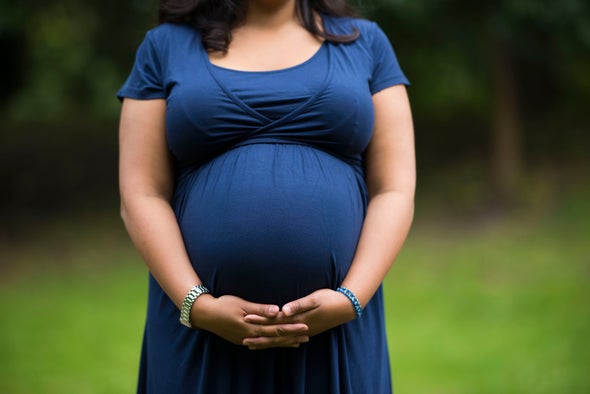The body’s hormonal balance explicitly influences the cause of constipation in women.
Even research published in the Journal of Vocational Health Studies shows every one constipated man four women are also constipated at the same time. This study also revealed the prevalence of constipation in women reached 52.9 per cent.
Causes of constipation in women

Women often experience changes in their bodies due to hormonal cycles. So, what causes constipation in women caused by this hormonal cycle?
1. Before menstruation
The menstrual cycle every month is influenced by hormones. Unconsciously, the ups and downs of hormones in the body before menstruation can also cause women to be constipated.
Research published in the journal National Center of Biotechnology Information shows that being in the luteal phase is the cause of complex bowel movements in women before menstruation.
The luteal phase is the phase between ovulation and before menstruation.
This study found that the hormone progesterone is the cause of women’s constipation. This hormone inhibits the smooth muscle in the intestines.
In the luteal phase, progesterone levels are at their peak. Because this hormone affects the smooth muscles in the intestines, it takes longer to process food that is excreted in the form of feces.
In this phase, there is also a tendency for women to feel their bowel movements become hard.
2. Pregnancy

According to findings published in the journal PLOS One, the hormone progesterone increases during pregnancy.
Like the luteal phase, progesterone during pregnancy also triggers contractions in the small intestine and causes complex bowel movements. Not only that, the process of passing faeces from the intestine becomes longer.
Another study published by the Gastroenterology Clinics of North America found that another cause of constipation in pregnant women is blood volume that increases up to 40% of normal.
Increased blood flow during pregnancy makes the veins swell and widen. As a result, blood flow slows down, and the uterus enlarges.
At the same time, the pressure from the uterus weakens the pelvic floor, affecting the work of the small intestine. Therefore, constipation is more prone to occur during pregnancy.
3. Irritable bowel syndrome (IBS)
Constipation before menstruation is more likely to occur in women who have irritable bowel syndrome (IBS). Even the symptoms of difficulty defecating experienced will be more severe.
Research published by the BMJ Journals Gut shows that prostaglandins in the body increase during menstruation. It causes women to experience recurrence of symptoms of irritable bowel syndrome.
Irritable bowel syndrome is one of the causes of complex bowel movements in women. Not only that, but the symptoms you feel are also in the form of abdominal pain and bloating.
4. Endometriosis
The lining of the inner uterine wall is called the endometrium. The endometrium grows outside the uterus in people with endometriosis, even in other body organs. Usually, this tissue grows in the lower abdomen and pelvis.
Endometrial growth outside the uterus causes abnormal menstruation to be painful because inflammation and cysts arise in the reproductive organs.
In addition, the symptoms of endometriosis also result in impaired colon function. The intestine, including the large intestine, is closely related to the smoothness of bowel movements. One commonly reported sign of endometriosis is painful bowel movements and constipation.
These symptoms are the cause of constipation in women. This disorder is often misdiagnosed as IBS. However, a sign of endometriosis is that the symptoms appear just before menstruation.
How to overcome constipation in women
Indeed, gender can affect constipation. However, regardless of gender, there are ways to treat the causes of constipation in women.
The main thing you can do to prevent or reduce constipation in women is a healthy lifestyle. It is a lifestyle that can adapt to reduce the causes of constipation in women.
1. Consumption of high-fibre foods
Research published in the journal World Journal of Gastroenterology shows that fibre foods can overcome the causes of constipation. Fibre foods are known to increase the frequency of bowel movements.
Soluble fibre can absorb large amounts of water. It makes the texture of the stool becomes not hard. Meanwhile, insoluble fibre can make stools denser and heavier. It makes the faeces even faster out of digestion.
2. Sports
Research published in the journal Plos One found that the cause of constipation in women is closely related to lack of exercise and too much sitting. Practice makes a person move his body intensely. It also increases the activity of the colon.
It makes the faeces not settle in the large intestine for a long time.
Exercise can also reduce levels of the hormone progesterone. Previously known, progesterone affects how long faeces stay in the digestive tract.
3. Drink enough water
Consuming enough water in a day helps to avoid the causes of constipation in women. Lack of body fluids or dehydration can cause chronic constipation.
When there is a lack of water, the large intestine will absorb moisture from leftover food. It will make the stool hard. Finally, the seat is difficult to pass, and constipation occurs.
To avoid dehydration which is the cause of constipation in women, fulfil the water intake according to the nutritional adequacy rate (RDA).



